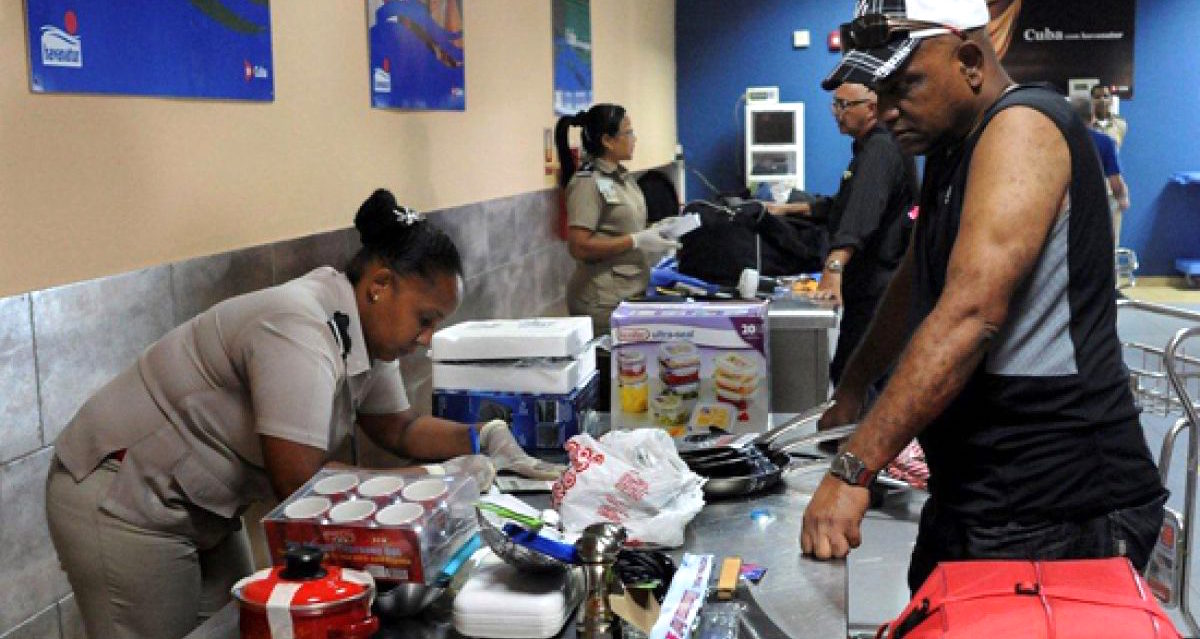"It's clear. The Government will not allow us to survive in Cuba. It's always forcing us to play by its rules," said Carlos Fonseca O'Farril, one of the hundreds of Havanans involved in the "mule" business and who fear the Cuban Central Bank's new provisions on the entry of foreign currency into the country.
"Mules" are one of the ways that Cuban emigrants, especially in the United States, send money to their relatives on the island in an effort to ensure that it reaches them in dollars, not converted by the government into convertible pesos or national currency. This money is also an element fundamental to the prosperity of many private businesses in Cuba.
With the reopening of the José Martí International Airport on November 15, and the freeze on remittances through Western Union, due to US sanctions to FINCIMEX, a Cuban military company, many had pinned their hopes on "mules". Resolution 124 of the Central Bank of Cuba has been interpreted as a direct threat to these dispatches and another sign that the Government is determined for all currencies entering the country to do so through its banking system, and remain within it.
"The problem with the Government is not that it establishes laws or regulations, but rather that they are all aimed, in one way or another, at preventing the Cuban citizen from prospering. And the burden generated by the failure to find substitute imports in the country rests on the shoulders of the workers, whether we are state or private," said Fonseca O'Farril, who once wished to establish a business on the island, but later decided to emigrate.
The Central Bank of Cuba's Resolution 124 establishes that when Customs officials detect "individuals who repeatedly import or export freely convertible currency", and suspect that it involves "undue movements of capital unrelated to the flow of travelers, they shall request from the passenger additional information regarding the origin or destination of the funds "and report it to the Central Bank of Cuba's General Directorate of Financial Operations Investigations."
It also authorises Customs to make confiscations, without prejudice to other civil and criminal actions.
The Resolution, however, does not specify what is meant by a "repeated manner." In addition to this, the only way to detect influxes of money - apart from inspections - is through the Customs Declaration upon entry into the country, only required for amounts greater than 5,000 in Freely Convertible Currency (MLC). Therefore, it is not necessary to declare the removal or bringing of amounts less than this amount.
A noteworthy point is the authority granted to Customs officials to determine when there are suspicions of "undue capital movements not related to the flow of travelers." This power leaves the decision to confiscate or not up to the duty officer.
Travelers considered suspicious may also be subjected to "civil and criminal actions".
International practice requires, as a prerequisite to invade the freedom and rights of travelers, in the event of suspected money laundering, or terrorist financing, among others, not presumption on the part of Customs officials, but rather accreditation that the person is being investigated for these alleged crimes.
The ambiguity of the resolution has caused many Cubans to fear that it is aimed at confiscating money transferred by "mules."
"It leaves very little latitude and limits the operations of the 'mules' that, whether recognized or not, are vital to the private sector in Cuba," said Samantha Alemán García, who after two days in line was able to buy a plane ticket to the United States.
"Insisting on prospering in Cuba is mentally exhausting," Aleman García complained. "According to my interpretation, and that of many, this law singles out the 'mules' and, therefore, the entire private sector. I can't live with that daily fear."
"History has shown that the Cuban government is oblivious to justice, because it is one thing to decree laws and quite another thing for those laws to be applied in a just way, and not at the discretion of a group of officials," noted Camila Fundora Cruz. "Beyond being legitimate or not, this Resolution is the coup de grace for mules, the private sector and ordinary Cubans."
